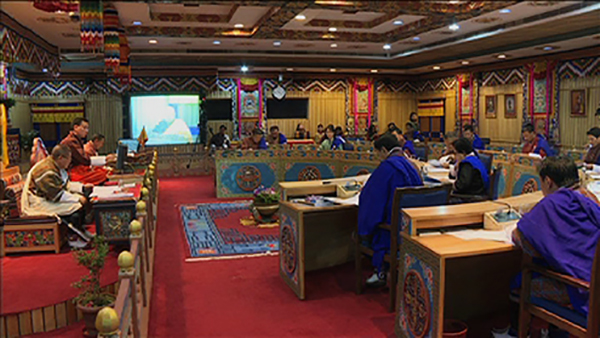 The National Council unanimously agreed to the recommendations submitted by the Natural Resources and Environment Committee on the ratification of the amendment to the Montreal Protocol on Substances that Deplete Ozone Layer. The house also ratified the Bilateral Air Services Agreement with the United Arab Emirates yesterday.
The National Council unanimously agreed to the recommendations submitted by the Natural Resources and Environment Committee on the ratification of the amendment to the Montreal Protocol on Substances that Deplete Ozone Layer. The house also ratified the Bilateral Air Services Agreement with the United Arab Emirates yesterday.
In 1987, the Montreal Protocol on Substances that Deplete the Ozone layer, binding obligations to reduce use of Ozone Depleting Substances (ODS) called Chlorofluorocarbons (CFC) was adopted. The ODS consists of chemicals widely used in spray cans, refrigeration and air conditioning equipment which was previously considered safe because they are non-toxic and non-inflammable. The Vienna Convention was adopted in 1985 which called for cooperation, monitoring and exchange of research data but it did not impose obligations to reduce the usage of ODS.
The most important commitment of the Montreal Protocol is the mandatory agenda for the phase out of ODS. Since its inception, there have been five amendments to the Protocol. The National Environment Commission recommended Kigali Amendment to be considered for the ratification.
The Kigali Amendment requires phase down of Hydrofluorocarbon (HFC), bringing into control both production and consumption of HFCs. The HFC are used in refrigeration, air conditioning and heat pumps, propellants in aerosols, fire protection fluids, solvents and blowing agents to manufacture insulating foam. Although HFCs are non-ODS, they are powerful greenhouse gases that have significant global warming potentials.
While presenting the background on the amendment to the Montreal protocol on substances that deplete ozone layer, the Agriculture Minister reported that Bhutan on agreeing to the amendment will benefit in Environmental conservation and technology assistance. He said it will also help in strengthening the country’s technician base and also updating their skills to cater to changes in the industry and technology.
All the 22 members present in the house agreed to the recommendations made by the Committee and will be sent to National Assembly for re-deliberations.
In the latter part of the session, the house ratified the Air Service Agreement between Bhutan and the United Arab Emirates. The Minister for Information and Communications presented a background on the agreement.
Besides several disadvantages such as runway congestion, risk of introducing inappropriate foreign cultures, and its adverse impact on the environment, the minister also presented its advantages. He mentioned the country will benefit in terms of tourism, employment opportunities and the people can have greater access to travel with competitive airfares among others.
The Air Service Agreement with UAE was first explored in 2007 based on the request of Druk Air to possibly add Dubai as the next potential destination.
The house later ratified the agreement between Bhutan and the United Arab Emirates. It will be now submitted to the Druk Gyalpo for the Royal Assent.










